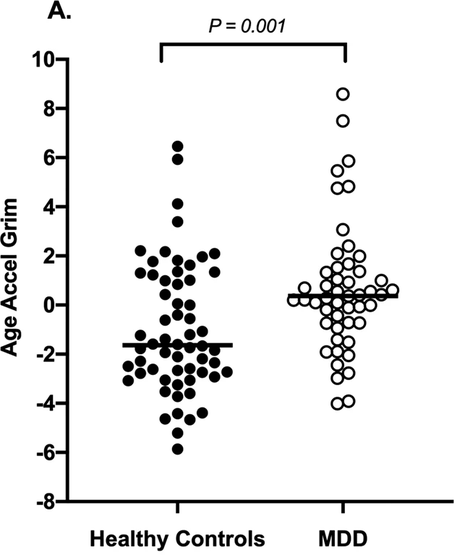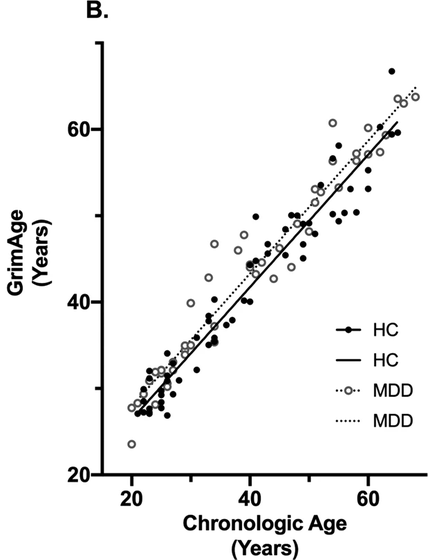Report that depression 'accelerates cell aging'

Research results have been published that 'cell aging progresses for two years' when suffering from
“GrimAge,” an epigenetic predictor of mortality, is accelerated in major depressive disorder | Translational Psychiatry
https://www.nature.com/articles/s41398-021-01302-0
Cells age prematurely in those with depression, study suggests | Live Science
https://www.livescience.com/depression-may-accelerate-cell-aging.html
Major depressive disorder has long been known to increase the risk of various aging-related disorders such as cardiovascular disease, Alzheimer's disease, and osteoporosis, as well as premature mortality. Following a series of studies, a research team led by Ekaterina Prozenko of the University of California, San Francisco hypothesized and tested that 'major depressive disorder promotes biological processes in the body and accelerates aging itself.' I conducted an experiment.
As an age measurement method to prove that 'aging itself is accelerated', the research team adopted an 'epigenetic clock ' that calculates the biological age from chemical changes in DNA. The epigenetic clock calculates the exact age from the degree of the process of 'replacement of specific atoms in DNA with methyl groups ' that progresses with age, called DNA methylation.
The research team compared blood samples from 49 untreated patients with major depressive disorder and 60 healthy men and women of the same age. When compared after taking into account gender, smoking status, BMI index, etc., patients with major depressive disorder showed no physical signs of aging, while cellularly 'around the median'. There was an aging of '2 years'.
The following is a one-dimensional scatter plot that plots the value obtained by subtracting the actual age from the cell age calculated from the pattern of DNA methylation called 'Grim Age'. Healthy Controls (healthy control group compared to), Age Accel Grim (the value of cell age minus actual age) of the MDD (major depressive disorder patients) have been shown to be high.

The graph below shows the Y-axis side as Grim Age and the X-axis side as Chronological age. It can be seen that MDD (patients with major depressive disorder) have higher Grim Age values than HC (healthy control group). This means that the cell age is progressing relative to the actual age.

The research team said, 'In order to understand depression in this study, depression should be regarded as a' systemic disease 'rather than a' purely mental illness limited to processes in the brain. ' It turned out. ' On the other hand, it is unclear whether 'depression induces DNA methylation' or 'there is some underlying factor that induces both depression and methylation.' I have commented.
Related Posts:
in Science, Posted by darkhorse_log







